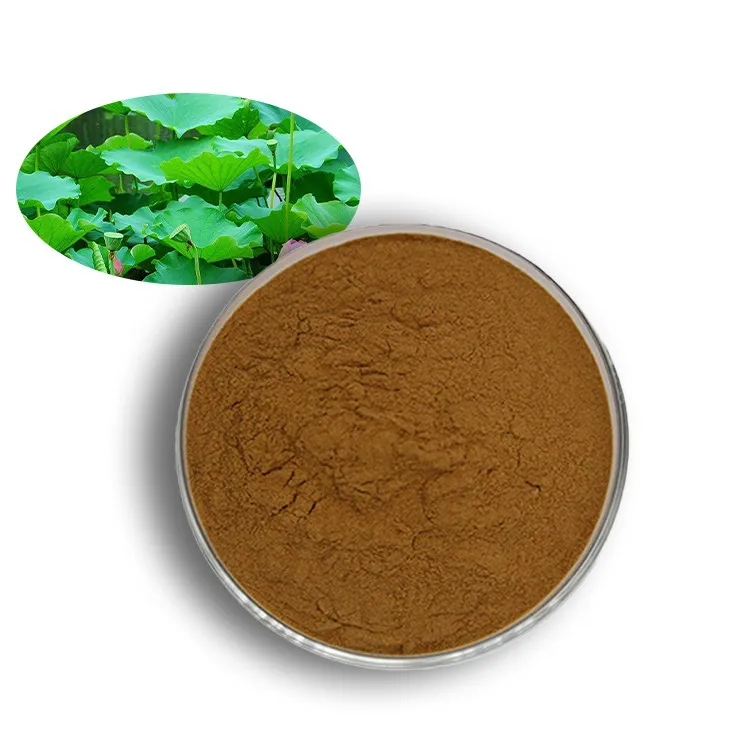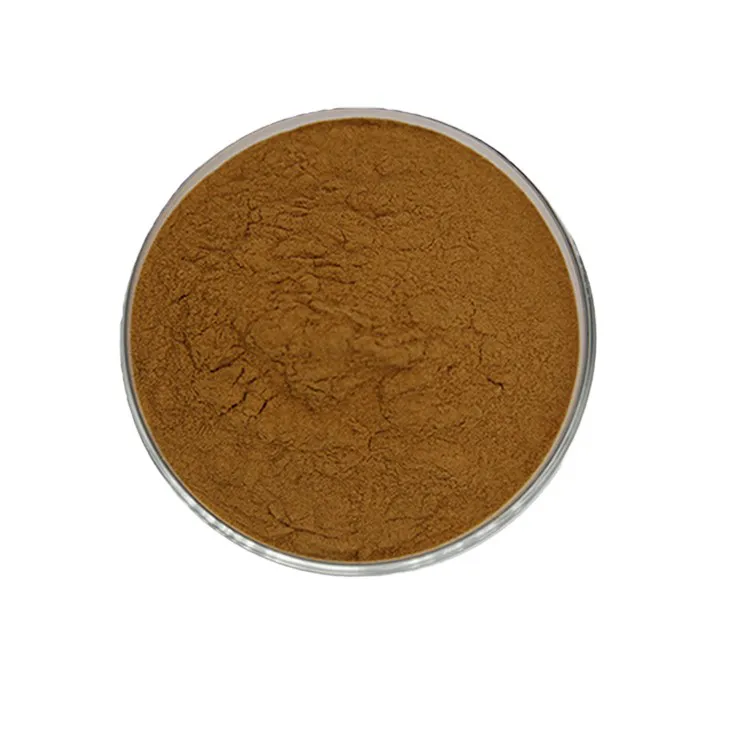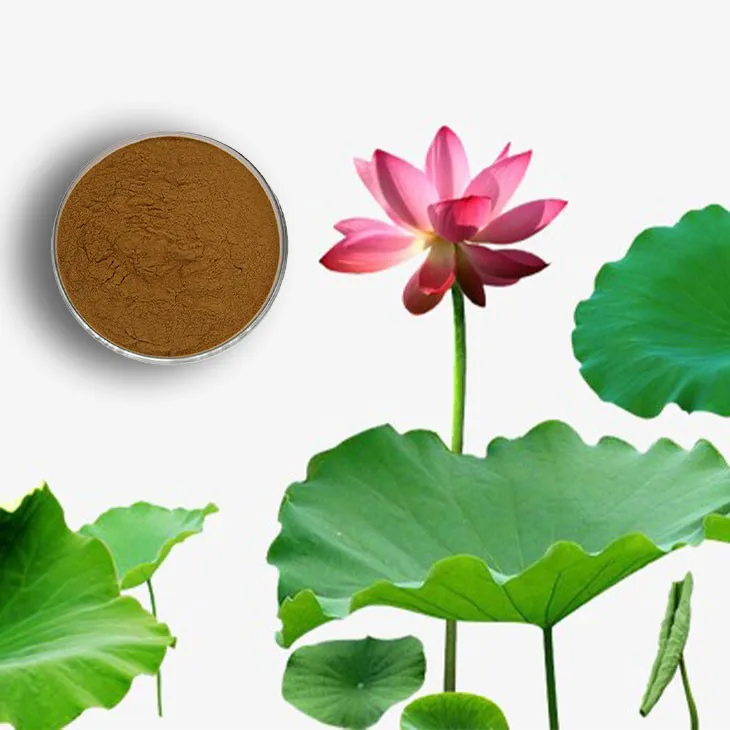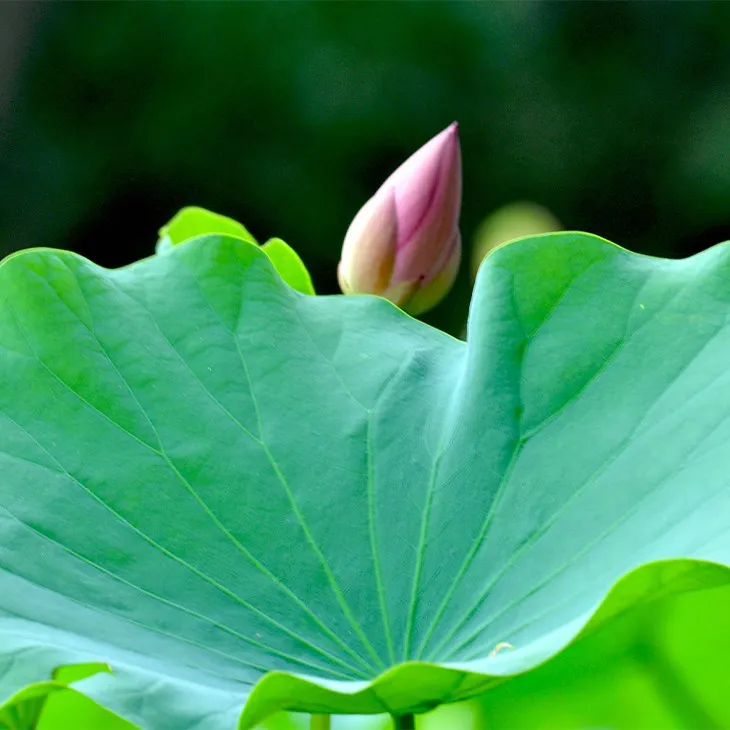- 0086-571-85302990
- sales@greenskybio.com
14 Major Health - care Effects of Lotus Leaf Extract.
2024-11-12

1. Introduction
The lotus plant has long been revered in various cultures for its beauty and symbolism. However, it is also a source of a valuable substance - Lotus leaf extract. This extract is emerging as a natural remedy with a wide range of health - promoting properties. In this article, we will explore in detail the 14 remarkable health - care effects of Lotus leaf extract, which offer a multi - faceted approach to well - being.

2. Weight Management
2.1 Appetite Suppression
- Lotus leaf extract has been shown to play a role in suppressing appetite. It may interact with the body's hormonal signals related to hunger and fullness. For example, it could potentially affect the levels of hormones like ghrelin, which is known as the "hunger hormone". By reducing the feeling of hunger, it can assist individuals in controlling their calorie intake, which is a crucial aspect of weight management.
- Another important aspect of its role in weight management is its influence on fat metabolism. Studies suggest that the extract may enhance the body's ability to break down stored fat. It could stimulate certain enzymes involved in fat oxidation, thereby promoting the use of fat as an energy source rather than allowing it to accumulate in the body.

3. Antioxidant Power
3.1 Free Radical Scavenging
- Lotus leaf extract is rich in antioxidants. These antioxidants are like the body's defense soldiers against free radicals. Free radicals are unstable molecules that can cause damage to cells, DNA, and proteins. The extract's antioxidant components, such as flavonoids and phenolic acids, can scavenge these free radicals, neutralizing their harmful effects and protecting the body from oxidative stress.
- By combating oxidative stress, lotus leaf extract also exhibits anti - aging effects. Oxidative stress is closely associated with the aging process, as it can lead to the breakdown of collagen, the appearance of wrinkles, and a decline in overall skin health. The antioxidants in the extract help to maintain the integrity of cells and tissues, promoting a more youthful appearance both internally and externally.

4. Blood Sugar Regulation
4.1 Insulin Sensitivity
- Lotus leaf extract may improve insulin sensitivity. Insulin is a hormone that regulates blood sugar levels by facilitating the uptake of glucose into cells. When cells become resistant to insulin, blood sugar levels can rise. The extract has the potential to enhance the cells' response to insulin, allowing for better glucose regulation and reducing the risk of developing type 2 diabetes.
- It also plays a role in glucose metabolism. It may influence the way the body processes and stores glucose. Some studies indicate that it can help to lower post - meal blood sugar spikes by slowing down the absorption of glucose from the digestive tract, which is beneficial for maintaining stable blood sugar levels throughout the day.

5. Cardiovascular Health
5.1 Cholesterol Management
- Lotus leaf extract can have a positive impact on cholesterol levels. It may help to reduce levels of LDL (low - density lipoprotein), often referred to as "bad" cholesterol. By doing so, it can lower the risk of plaque formation in the arteries, which is a major factor in the development of cardiovascular diseases such as heart attacks and strokes.
- There is also evidence suggesting that the extract can contribute to blood pressure regulation. It may act on the blood vessels, causing them to relax and dilate. This helps to reduce the resistance in the blood vessels, resulting in lower blood pressure and a healthier cardiovascular system.
6. Digestive Health
6.1 Gut Microbiota Modulation
- Lotus leaf extract can influence the gut microbiota. A healthy gut microbiota is essential for proper digestion and overall health. The extract may promote the growth of beneficial bacteria in the gut while suppressing the growth of harmful ones. This balance can improve digestion, enhance nutrient absorption, and even boost the immune system as a large part of the immune system is located in the gut.
- It also has the potential to stimulate the production of digestive enzymes. These enzymes are crucial for breaking down food into smaller, absorbable components. By increasing the activity of digestive enzymes, lotus leaf extract can help the body to better digest and utilize the nutrients from food, preventing issues such as indigestion and bloating.
7. Anti - Inflammatory Properties
7.1 Inflammatory Response Modulation
- Lotus leaf extract exhibits anti - inflammatory properties. It can modulate the body's inflammatory response. Inflammation is a natural process that the body uses to fight off infections and heal injuries. However, chronic inflammation can lead to various diseases such as arthritis, heart disease, and cancer. The extract can help to keep inflammation in check, reducing the risk of these chronic diseases.
- As a result of its anti - inflammatory effects, it may also provide some pain relief. Inflammatory pain is a common type of pain, and by reducing inflammation, the extract can alleviate pain associated with conditions such as joint pain, muscle soreness, and certain types of headaches.
8. Liver Health
8.1 Detoxification Support
- The liver is the body's major detoxification organ, and lotus leaf extract can support its function. It may help the liver to better process and eliminate toxins from the body. This can protect the liver from damage caused by environmental toxins, drugs, and excessive alcohol consumption.
- There is also evidence that the extract can prevent the development of fatty liver. Fatty liver occurs when there is an excessive accumulation of fat in the liver cells. Lotus leaf extract, through its effects on fat metabolism and antioxidant properties, can help to maintain a healthy liver by preventing the build - up of fat in the liver.
9. Kidney Health
9.1 Filtration Support
- Lotus leaf extract can support the kidney's filtration function. The kidneys are responsible for filtering waste products from the blood and excreting them in the urine. The extract may help to maintain the integrity of the kidney's filtration membranes, ensuring efficient removal of toxins and waste from the body.
- It also plays a role in regulating fluid balance. The kidneys are involved in maintaining the right amount of water and electrolytes in the body. The extract can influence the kidney's ability to reabsorb or excrete water and electrolytes, helping to prevent issues such as fluid retention or dehydration.
10. Immune System Boost
10.1 Immune Cell Stimulation
- Lotus leaf extract can stimulate the activity of immune cells. These immune cells, such as lymphocytes and macrophages, are the body's first line of defense against pathogens. By enhancing the function of these cells, the extract can improve the body's ability to fight off infections and diseases.
- Some components of the lotus leaf extract also possess antimicrobial activity. They can directly inhibit the growth of bacteria, viruses, and fungi. This provides an additional layer of protection for the immune system, reducing the likelihood of infections.
11. Skin Health
11.1 Acne Treatment
- Lotus leaf extract can be beneficial for acne treatment. Its anti - inflammatory and antibacterial properties can help to reduce the inflammation and bacterial growth associated with acne. It can also regulate sebum production, which is often overproduced in acne - prone skin, leading to clogged pores and breakouts.
- The extract may also contribute to skin hydration. It can help to maintain the skin's moisture barrier, preventing water loss from the skin. This results in softer, more supple skin and can also reduce the appearance of dry, flaky skin.
12. Anti - Cancer Potential
12.1 Cell Proliferation Inhibition
- There is growing evidence suggesting that lotus leaf extract may have anti - cancer potential. It can inhibit the proliferation of cancer cells. Cancer cells divide and multiply uncontrollably, and the extract may interfere with the cell cycle of cancer cells, preventing them from dividing and spreading further.
- It may also induce apoptosis, which is programmed cell death. Cancer cells often evade the normal process of apoptosis, allowing them to survive and grow. The extract can trigger apoptosis in cancer cells, helping to eliminate them from the body.
13. Respiratory Health
13.1 Bronchial Relaxation
- Lotus leaf extract can cause bronchial relaxation. This is beneficial for individuals with respiratory conditions such as asthma or chronic obstructive pulmonary disease (COPD). By relaxing the bronchial muscles, it can improve air flow in the lungs, reducing symptoms such as shortness of breath and wheezing.
- It also has anti - inflammatory effects in the respiratory tract. Inflammation in the lungs can lead to various respiratory problems. The extract can reduce inflammation in the airways, protecting the lungs from damage and improving overall respiratory health.
14. Conclusion
In conclusion, lotus leaf extract is a remarkable natural substance with a plethora of health - care effects. From weight management to antioxidant power, from blood sugar regulation to anti - cancer potential, it offers a comprehensive approach to maintaining and improving health. However, more research is still needed to fully understand its mechanisms of action and to optimize its use in various health applications. As with any natural remedy, it is important to consult a healthcare professional before using lotus leaf extract for therapeutic purposes.
FAQ:
What are the main components in lotus leaf extract?
Lotus leaf extract contains various components, such as alkaloids (including nuciferine), flavonoids, and phenolic acids. These components contribute to its diverse health - care effects.
How does lotus leaf extract help with weight management?
It may help with weight management in several ways. Some of its components can potentially affect lipid metabolism and increase energy expenditure. Also, it might suppress appetite, which could lead to a reduction in calorie intake.
What antioxidant effects does lotus leaf extract have?
The flavonoids and phenolic acids in lotus leaf extract are antioxidant agents. They can scavenge free radicals in the body, reducing oxidative stress. This helps protect cells from damage, which is associated with various diseases and aging processes.
Can lotus leaf extract improve digestion?
There is evidence suggesting that lotus leaf extract may have a positive impact on digestion. It could help regulate the function of the gastrointestinal tract, potentially enhancing the secretion of digestive enzymes and promoting better absorption of nutrients.
Is lotus leaf extract safe for long - term use?
While lotus leaf extract is generally considered safe for most people when used appropriately, long - term use should be done under the guidance of a healthcare professional. High doses or improper use may cause some side effects, such as gastrointestinal discomfort.
Related literature
- The Health - Promoting Properties of Lotus Leaf Extract: A Comprehensive Review"
- "Lotus Leaf Extract: Chemical Composition and Its Role in Health and Disease"
- ▶ Hesperidin
- ▶ Citrus Bioflavonoids
- ▶ Plant Extract
- ▶ lycopene
- ▶ Diosmin
- ▶ Grape seed extract
- ▶ Sea buckthorn Juice Powder
- ▶ Fruit Juice Powder
- ▶ Hops Extract
- ▶ Artichoke Extract
- ▶ Mushroom extract
- ▶ Astaxanthin
- ▶ Green Tea Extract
- ▶ Curcumin
- ▶ Horse Chestnut Extract
- ▶ Other Product
- ▶ Boswellia Serrata Extract
- ▶ Resveratrol
- ▶ Marigold Extract
- ▶ Grape Leaf Extract
- ▶ New Product
- ▶ Aminolevulinic acid
- ▶ Cranberry Extract
- ▶ Red Yeast Rice
- ▶ Red Wine Extract
-
Hedyotis Diffusa Extract
2024-11-12
-
Honeysuckle Pollen
2024-11-12
-
melatonin extract
2024-11-12
-
Citrus bioflavonoids
2024-11-12
-
Ivy Extract
2024-11-12
-
Mulberry Extract
2024-11-12
-
Troxerutin
2024-11-12
-
Black Pepper Extract
2024-11-12
-
Soy Extract
2024-11-12
-
Nettle Root Extract
2024-11-12





















